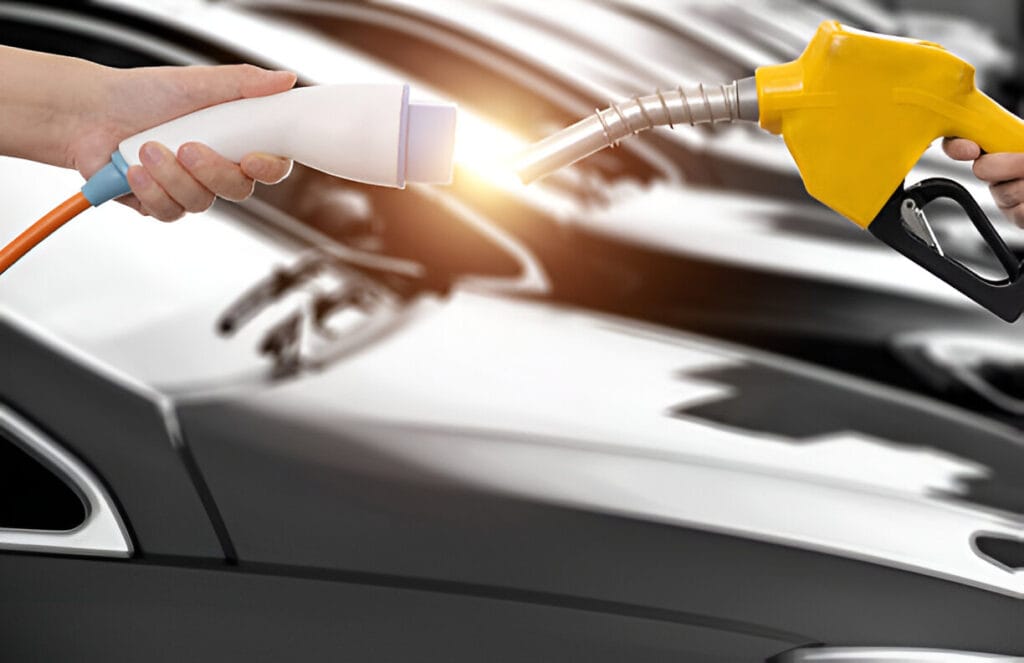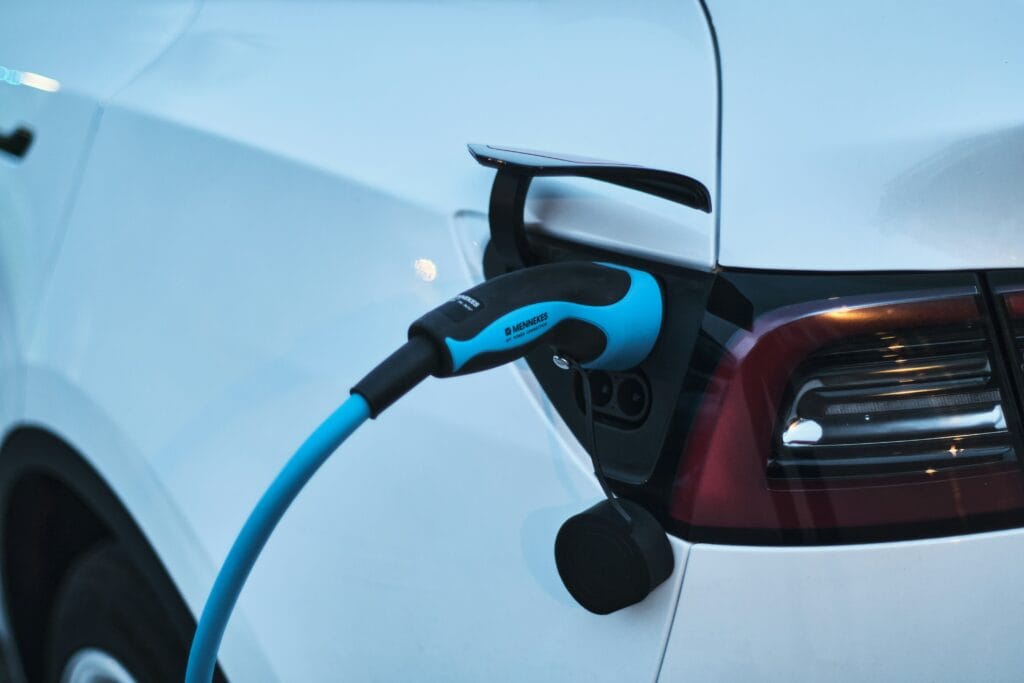Have you ever asked yourself, “Do electric cars use oil like traditional cars do?” It’s a common question, and a surprising one too! While a regular car needs motor oil to function smoothly, an EV runs on an electric motor, not a combustion engine. That means no pistons, no spark plugs, and yes / no regular changing the oil ! But don’t rush to skip all upkeep just yet; EVs still use fluids like coolant and brake fluid, and even some light Lubricant use. Let’s explore what truly keeps electric vehicles running slick and smooth.
Do Electric Cars Require Oil?
While owning an EV offers benefits like fewer moving parts and less upkeep, confusion remains about oil use. Unlike a conventional vehicle, an electric vehicle runs on an electric motor, not a Internal combustion engine. So, many drivers ask: Do electric cars require oil? To answer that, we must understand how EV work, what fluids they use, and whether they need Lubricant use like traditional cars do.
Why Electric Cars Don’t Use Engine Oil
Electric cars do not need engine oil because they don’t contain an internal combustion engine. Instead of pistons and crankshafts, they rely on electric motors powered by a battery. So, EV use no oil for Lubricant use the way traditional engine oil would. This fundamental design eliminates the need for regular changing the oil. Therefore, when asking “do EV use oil?”, the answer is simple: they don’t use engine oil because there’s no engine to lubricate.
Did you know that fully electric vehicles eliminate up to 90% of the maintenance tasks required for gas-powered cars?
How Electric Motors Differ from Traditional Engines
Electric motors function without combustion. Unlike a gas-powered car, there are no explosions, pistons, or spark plugs in an electric engine. This results in fewer moving parts and significantly less upkeep. Additionally, electric engines operate more efficiently and don’t overheat as easily as ICE. Because of this difference, electric vehicles require fewer fluids and less frequent attention to lubricant levels.
Do EVs Ever Require Lubricants?
Although EVs don’t need engine oil, they still require lubrication in specific components. Motor bearings, for instance, may require lubricant to function smoothly. Also, parts like the transmission in some models may contain fluid or grease that needs attention. However, EV require far less Lubricant use than gas-powered cars. So, while EVs don’t require engine oil, they do rely on select lubricants to help maintain smooth operation.
Did you know that EVs still require fluids like battery coolant and brake fluid for safe and efficient operation?
Understanding EV Lubrication Needs

Electric vehicles require a different approach to vehicle upkeep. Since they don’t contain an ICE, they avoid traditional Lubricant use systems. Still, every electric vehicle includes systems that need regular checks. Understanding what EV fluids exist helps EV owners avoid issues and plan a proper upkeep schedule.
What Fluids Do Electric Vehicles Use?
Instead of motor oil, EVs rely on a few essential fluids. For example, brake fluid and battery coolant help regulate heat and ensure safety. Some EVs also use transmission fluid or special grease in gearboxes. So, the question “what fluids do electric vehicles use?” includes these critical elements, even if engine oil isn’t one of them.
Do Electric Cars Still Need Lubrication?
Yes, electric cars still need lubrication—but not in the same way traditional vehicles do. Certain moving parts like bearings and gear assemblies require oil for Lubricant use. Although EVs don’t need a regular changing the oil, they may still need grease or lubricants to protect parts that need smooth operation. This highlights that EV maintenance still includes lubrication, just not engine-related.
Read also New Car Technology
When Is Lubricant Replacement Necessary in EVs?
In EVs, lubricant replacement is rare but important. For example, brake systems may require fluid changes after specific mileage intervals. Some plug-in hybrid vehicles that contain a combustion engine in a hybrid system might require engine oil. So, while fully electric cars don’t need changing the oil, certain hybrid vehicle types still follow conventional oil replacement cycles.
Comparing EVs and Conventional Vehicles
Comparing an electric vehicle with a traditional car reveals major differences in design and upkeep. EVs eliminate combustion processes, reducing the number of moving parts. Traditional vehicles rely on complex engines that need oil and generate significant heat. This difference changes how we approach vehicle upkeep and fluid checks.
How Many Moving Parts in an EV vs. Traditional Car?
EVs contain fewer moving parts than gas-powered cars. A combustion engine relies on pistons, crankshafts, and camshafts, all needing regular lubrication. In contrast, electric motors operate with far fewer components. This simplicity leads to less maintenance and fewer parts that need Lubricant use, making EVs more efficient overall.
Why EVs Require Less Maintenance
EV upkeep tasks are simpler due to the absence of an ICE. There’s no need to change the oil, replace timing belts, or inspect spark plugs. Because EVs use electric motors, they avoid many problems common in ICE cars. This design explains why EVs require less maintenance and fewer fluid changes.
Did you know that plug-in hybrid vehicles need engine oil because they still contain an internal combustion engine?
Do EVs Require Synthetic or Motor Oil?
Fully electric vehicles do not require synthetic oil or motor oil. However, a hybrid vehicle requires motor oil since it contains a combustion engine. Plug-in hybrids may also need regular oil changes. Therefore, while battery EVs don’t require oil, hybrid vehicles still follow traditional upkeep patterns involving conventional or synthetic oil.
Oil Change in Electric vs. Gas Cars

The concept of changing the oil is central to car upkeep for gas-powered vehicles. But EVs operate differently. They eliminate combustion and reduce heat, which drastically changes how we think about fluids. This leads to fewer maintenance needs and eliminates the need for traditional engine oil.
Why Traditional Cars Need Regular Oil Changes
Traditional cars rely on ICE, which generate heat and friction. That’s why these vehicles need regular changing the oil. Engine oil for Lubricant use reduces wear and prevents engines from overheating. Without proper oil, a gas-powered car can suffer major damage.
Read also Toyota Solid-State Battery
Do Electric Vehicles Need a Regular Oil Change?
Electric vehicles do not need a regular changing the oil. Since they don’t contain a combustion engine, there’s no engine oil to replace. However, hybrid vehicle owners must still change the oil as their systems include combustion components. So, while electric cars do not need engine oil, hybrid vehicle upkeep mirrors traditional practices.
What Makes Engine Oil Obsolete in EVs?
Engine oil becomes unnecessary in EVs because they lack an engine in the traditional sense. Instead, electric cars rely on electric motors that don’t combust fuel or produce high internal heat. This removes the need for engine oil, making “change the oil” a phrase irrelevant for battery electric vehicles.
Fluids and Maintenance in Electric Vehicles
While electric cars require less oil, they still need attention to fluid systems. Maintenance for EVs involves coolant, brake fluid, and sometimes transmission fluid. Understanding EV fluids helps owners schedule checkups, prevent overheating, and ensure parts that need Lubricant use stay protected.
What Vehicle Maintenance Do EVs Require?
EV maintenance includes checking brake fluid, battery coolant, and tire wear. These cars don’t require engine oil, but they still need upkeep. Regenerative braking systems extend brake pad life, but fluid checks remain essential. EVs need less oil, but proper upkeep ensures safety and performance.
Are There Fluids EV Owners Should Monitor?
Yes, EV owners should monitor fluids like battery coolant, brake fluid, and, in some models, transmission fluid. These are essential for cooling, stopping power, and Lubricant use. While electric vehicles require fewer fluids, the ones they do use are vital. Regular checks help maintain overall vehicle health.
How Does EV Maintenance Differ from a Gas Car?
EV maintenance eliminates several tasks. There’s no need for engine oil, timing belts, or spark plug replacement. In contrast, a gas-powered car requires frequent oil changes and combustion system inspections. EV upkeep focuses on battery health, fluid levels, and brake efficiency.
Future of Vehicle Lubrication and EVs
As electric and hybrid vehicles grow in popularity, the need for engine oil and conventional oil will decline. Fully electric vehicles don’t rely on combustion, so they avoid oil-related problems. This shift changes how drivers think about car maintenance and reduces the need for synthetic oil.
Will EVs Ever Require Engine Oil?
EVs don’t use engine oil and likely never will. Their electric engines don’t require combustion, which removes the need for engine oil entirely. While hybrid vehicle engines still use oil, fully electric models don’t need engine oil now or in the future.
How EV Technology Reduces Lubrication Needs
Advanced EV technology minimizes the need for Lubricant use by avoiding moving engine parts. Electric motors and regenerative braking replace many traditional systems. With fewer moving parts, EVs don’t generate the friction or heat that traditional engines do. This reduces the need for oil and ongoing lubrication.
Can EVs Replace Conventional Vehicles Completely?
Yes, EVs can replace conventional vehicles, especially as battery range, EV batteries, and infrastructure improve. Electric cars require less maintenance, don’t need regular oil changes, and use fewer fluids. As more drivers see the benefits of owning an electric vehicle, gas mileage concerns and needing oil will fade.
Frequently Asked Questions about Electric Cars use Oil
Do electric cars require oil changes?
Electric cars do not need regular oil changes because they don’t have an ICE. However, a hybrid vehicle requires engine oil since it contains a combustion engine. Electric cars need oil only in rare cases, like transmission Lubricant use , but EVs don’t need regular oil changes like gas-powered cars.
What fluids does an electric car need?
An electric car needs battery coolant, brake fluid, and sometimes transmission fluid. These fluids do electric vehicles help manage temperature, braking, and transmission performance. EVs may also require grease for bearings, but they do not use motor oil or conventional oil.
What lubricates electric cars?
Electric cars use lubricants like grease or synthetic oil for motor bearings, moving parts, and gearboxes. While they don’t need engine oil for Lubricant use , some parts that need to lubricate include bearings, gears, and sometimes the transmission. Overall, EVs require Lubricant use only for select components.
Do electric cars use antifreeze?
Yes, electric cars use a form of antifreeze known as battery coolant. This fluid keeps the battery and electronics from overheating. Since a vehicle can generate heat, this coolant plays a vital role in EV maintenance. It differs from antifreeze used in ICE vehicles but serves a similar purpose.
Not entirely—but kind of. Although electric cars don’t use engine oil, they still rely on a few key fluids and lubricants to function properly. Whether you’re driving a fully electric car or a plug-in hybrid, understanding what your vehicle needs can save you time, money, and a future repair. So, next time someone asks “Do electric cars use oil?”, you’ll know exactly what to say. Have you checked your EV’s coolant lately?
Read also Explained Electric Vehicle Transmissions